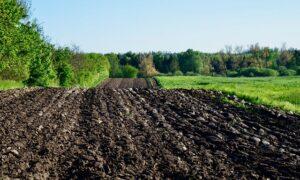The soil will appreciate the use of organic fertilizers
Farmers can achieve higher crop yields if they pay attention not only to the health of the plants, but also to the health of the soil.The use of organic fertilizers – including processed forms – can greatly improve the structure and water-holding capacity of the soil, which, in addition to creating more favorable conditions for plants, also reduces production costs. Overall, organic fertilizer is an economical and environmentally friendly technology that should be used by as many farmers as possible in the future.

(Photo: Pixabay)
Soils are in dire need of organic matter, as the structure and health of the soil have deteriorated a lot in recent decades. The amount of organic matter in our soils has also decreased significantly in global terms, which is mainly due to the predominantly applied agrotechniques. One such agrotechnical element is the lack of replacement of organic materials. In addition to feeding the plants, it is becoming more and more obvious that it is not the plant that needs to be fed, but our soil, in order for healthier, more resistant plants to grow on it. And healthier plants are also more resistant to pests and weather extremes. One of the most important properties of the soil is its structure, which basically consists of the skeletons, the organic matter in the soil, and the multitude of organisms. The appropriate structure of soils helps with proper nutrient and water management, can show greater resistance to the effects of erosion, and last but not least, contributes to the sequestration of atmospheric carbon dioxide. Organic fertilizers and organic crop-enhancing substances – but also green manure plants and mulch – increase the humus content of the soil, and in the long term improve the soil’s structure, nutrient and water management, and nutritional value. They also improve the utilization of plant residues and nitrogen fertilizer, thereby reducing the amount of nitrogen-based fertilizer applied. On structured, non-compacted soil, the traction power requirement of the machines is also lower, which also reduces production costs. Soil with a good structure can better adapt to climate change, less drought-sensitive, healthier plants and less need for plant protection. Fertilizers of organic origin, organic fertilizer, are thus overall an economical and environmentally friendly technology.
The changing climate has also highlighted the need to change our usual tillage practices
Good soil is like a sponge, it also absorbs moisture and stores it until the vegetation growing on it needs it, then transfers it. A well-structured, non-compacted soil rich in organic matter could store almost the entire year’s precipitation, especially if the soil is covered and covered, reducing the rate of evaporation. Despite this, farmers in Hungary still use organic manure on a relatively small area. The use of unprocessed organic fertilizers is most typical in the area of animal farms, since the use of artificial fertilizers is more typical among farmers due to the transportation costs and the difficulties associated with transportation and storage. The situation has improved in recent years thanks to the Agricultural Environmental Management support of the Rural Development Program, and the use of organic fertilizers has also been increased by the high prices of fertilizers in our country. The growing interest is also stimulated by awareness-raising: farmers also perceive that their soils are “hungry”, they are less able to overcome the shock effects of drought periods, and due to the lack of organic matter, the ability to supply water and nutrients also weakens. The establishment of the ideal soil condition, or close to it, in an already degraded soil does not take place in one year, but is the result of persistent work. However, more and more people are noticing that our soils need help, so that the farmer can produce more crop security.
NAK
Related news
Milk and dairy product prices decreased at the beginning of the year in Hungary
🎧 Hallgasd a cikket: Lejátszás Szünet Folytatás Leállítás Nyelv: Auto…
Read more >János Lázár: rural development is needed, not agricultural policy
🎧 Hallgasd a cikket: Lejátszás Szünet Folytatás Leállítás Nyelv: Auto…
Read more >Related news
GDP growth in OECD member countries slowed to 0.3 percent in the last quarter of last year
🎧 Hallgasd a cikket: Lejátszás Szünet Folytatás Leállítás Nyelv: Auto…
Read more >Change in Rossmann Hungary’s leadership: Kornél Németh decided to move towards new challenges in 2026
🎧 Hallgasd a cikket: Lejátszás Szünet Folytatás Leállítás Nyelv: Auto…
Read more >








